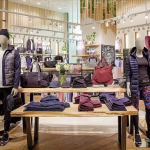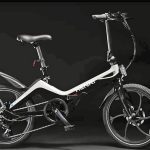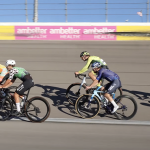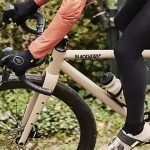K-Swiss, Inc. saw weaker second quarter results come in close to what was anticipated as the projections for declines in sales, earnings, and backlog continue. But the company is telling a completely different story with new product, new categories and a new brand as it continues to make “sizable” investments in the future.
The K-Swiss brand make-over starts with the re-design and re-launch of the Classic. The Classic LX Luxury Edition is seen as too thick, too heavy and too bulky by the consumer as they transition out of wider denim into skinny jeans. KSWS has gone back to the original shoe from 1966, which they say was lighter and thinner and more in keeping with the silhouette that kids are wearing today. They gutted the inside of the shoe and redid everything the way shoes should be made in 2009, not in 1966. And then they put it in the original box from 1966 and raised the price. Like the other initiatives, they are restricting the product to the most upscale accounts.
The other primary initiative involves running (see cover story in the August 15 issue of Performance Sports Retailer) where K-Swiss has taken a high/mid strategy on technology and distribution. Company Chairman and CEO Steven Nichols believes they “nailed it” the third time around on the running product with the development of rollout of the miSOUL and Tubes technologies. The miSOUL product, which is directed at running specialty, is described as customizable footwear and features high performance interchangeable mid-soles. The retail price is about $120 a pair.
The Tubes product, which was described as “techno fashion” is priced in the $70 to $75 range and is available through the other channels, including the family retailer segment. Nichols suggested that early results have been very promising and even cited sell-throughs in the high-single-digit to 10% range with some chain retailers.
The other aspect of the running program involves the licensing of the Ironman name for footwear and apparel. Again, this product is restricted in its distribution and is only sold to running and tri shops that also carry the K-Swiss brand.
The Ironman product and the K-Swiss running shoes will probably end up going into the big box stores at the beginning of 2011. Nichols said they have a fourth generation of running shoes that would be made available to the specialty shops when the current line goes to the big boxes. He described 2011 as the “real year for running.”
The last piece of the puzzle is the Palladium brand, which was acquired last year. Known fairly well in Europe, the Palladium brand has little brand awareness with consumers in the U.S. but is known by the retailers. The unique feature of the line is that the entire range has one outsole and three uppers. The rest is materials changes.
The Palladium sell-in has been restricted to the “absolute most upscale accounts” in the U.S. and Nichols said they have hit about 80% of their targets. The first product delivered last week.
For Palladium, Nichols said “things could happen real quick(ly).” He said there are numerous chains from 24 stores to 350 that are testing the brand in a dozen key doors and that business could explode with strong sell-through.
Looking at the current business, KSWS posted a second quarter net loss of $11.5 million, or 33 cents per diluted share, compared to net earnings of $26.4 million, or 75 cents per diluted share, in the year-ago period.
The second quarter results include a pre-tax non-operating loss of $2.6 million, or 8 cents per diluted share (after tax), from the acquisition of the remaining interest in Palladium SAS in June 2009, and a pre-tax gain of $1.9 million, or 5 cents per diluted share (after tax), from the sale of Royal Elastics in April 2009.
Total worldwide revenues decreased 34.8% to $54.0 million in the second quarter, with domestic revenues declining 18.7% to $28.7 million and international revenues decreasing 46.8% to $25.3 million for the period. Unit sales were down 21.6% for the period, reflecting much lower average selling prices as the company moved to liquidate inventories. At-once orders were 65% of the total for the quarter compared with 26% of revenues in Q2 last year, reflecting the high percentage of close-out sales.
For the K-Swiss brand, the average wholesale price per pair decreased to $23.15 in the second quarter compared with $27.59 in the prior-year period. The volume of footwear sold was 2.1 million pairs in the second quarter compared with 2.9 million pairs in the second quarter of 2008.
Overall gross profit margin fell nearly 14 points for the quarter to 30.1% of net sales, compared with 43.9% of sales in the year-ago period, due to “increased sales of close-out product and shift to domestic revenues comprising a larger percent of total revenues.”
European K-Swiss Brand Sales Halved…
K-Swiss Lifestyle revenues were down 45% when compared with the prior year period. The biggest seller for Lifestyle in the quarter was Classics, which sold 275,000 pair, an increase of 4% from the prior-year period. Other revenues, which include apparel and Palladium, were up 368%. Excluding Palladium, other revenues were up 78%.
Palladium brand revenues were $2.1 million for the quarter and carried a net loss of $1.7 million for the period. The Palladium order book through the end of the year was $11.5 million at the end of June.
The international business was down 46.8% in the second quarter and backlog was down 23% at quarter-end. European sales were down 55.0% in the quarter with a 19% decrease in backlog. Europe accounted for 28% of worldwide revenues in Q2, compared with 41% in the year-ago period. Excluding Palladium, the international business was down 51% and backlog was down 41% at quarter-end. European sales would have been down 61%, with a 43% decrease in backlog without the inclusion of the new brand. Sales in the Asian region were down 23% in the quarter and backlog was down 13% at quarter-end.
KSWS expects full-year revenues to be approximately $215 million to $230 million and expects to report a full-year loss per diluted share of approximately 70 cents to 90 cents per share.
>>> K-Swiss has entered a number of new categories and is doing it with a measured approach – true to the CEOs style – unlike another brand that saw completely different results in a running “launch” this year…













